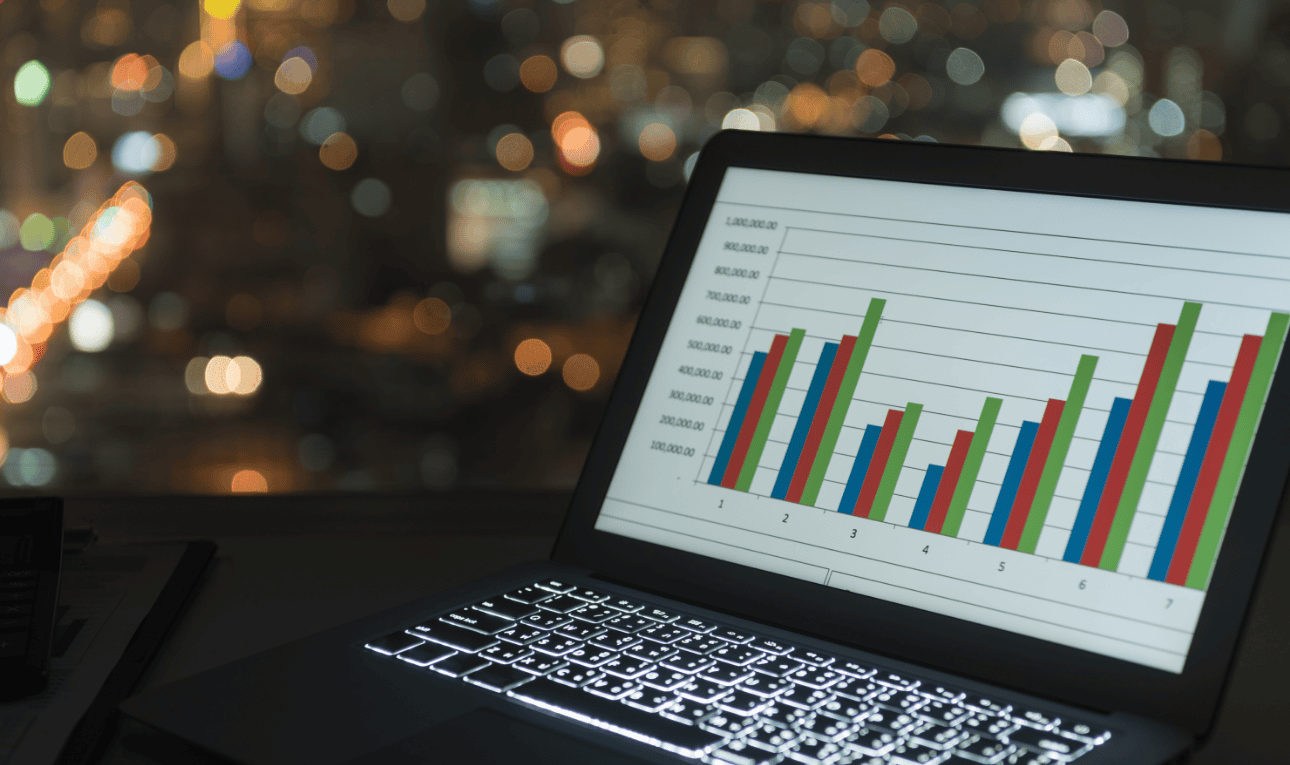Portfolio Management Services or Equity Mutual Funds: Key differences
Mon, 2 Dec 2024
8 mins

Portfolio Management Services (PMS) and Equity Mutual Funds are two popular investment avenues for investors seeking exposure to the equity markets. While both involve investing in stocks, there are significant differences in their structure, management, and operational aspects.
PMS is a specialized investment service offered by licensed portfolio managers or asset management companies. It involves creating and managing a customized portfolio of stocks, tailored to the individual investor's risk profile, investment objectives, and preferences. The portfolio manager actively manages the investments, making buy and sell decisions based on their research and expertise.
On the other hand, Equity Mutual Funds are investment vehicles that pool money from multiple investors and invest in a diversified portfolio of stocks. These funds are managed by professional fund managers, who make investment decisions based on the fund's stated investment objective and strategy. Investors in mutual funds own units or shares of the fund, rather than directly owning the underlying stocks.
-
Investment Strategy and Approach
Portfolio Management Services (PMS) and Equity Mutual Funds differ significantly in their investment strategies and approaches. PMS typically follows an active management approach, where a dedicated fund manager or team of professionals actively research, select, and manage a portfolio of stocks or other securities based on their investment philosophy and market analysis. The investment strategy in PMS is tailored to the specific objectives and risk profile of each client, allowing for a more personalized and customized approach.
In contrast, Equity Mutual Funds can be actively or passively managed. Active mutual funds employ a team of fund managers who actively research and select stocks or securities based on their investment strategy and market outlook, with the aim of generating returns that outperform the benchmark index. Passive mutual funds, on the other hand, follow an indexing strategy, where the fund's portfolio is designed to replicate the composition and performance of a specific market index, such as the S&P 500 or the Nifty 50.
PMS typically offers a higher degree of portfolio diversification compared to individual equity mutual funds. PMS portfolios can invest across various sectors, market capitalizations, and asset classes, providing exposure to a broader range of investment opportunities. However, equity mutual funds may also offer diversification by investing in a basket of stocks or securities within a specific investment objective or strategy.
Both PMS and equity mutual funds can employ various investment strategies, such as value investing, growth investing, sector-specific investing, or a combination of these approaches. PMS providers and mutual fund houses conduct extensive research and analysis to identify investment opportunities and manage their portfolios accordingly. -
Minimum Investment in PMS and MF?
Portfolio Management Services (PMS) typically require a higher minimum investment compared to equity mutual funds. PMS are tailored to high-net-worth individuals and institutional investors, with minimum investment of Rs 50 lakhs. This high entry barrier ensures that PMS providers can offer personalized portfolio management services and cater to the specific investment objectives and risk profiles of their clients.
On the other hand, equity mutual funds are more accessible to a broader range of investors. The minimum investment amount for equity mutual funds can be as low as INR 500 or INR 1,000, depending on the scheme and the investment mode (lump sum or SIP). This low entry point allows investors with varying levels of capital to participate in the equity markets and benefit from professional fund management.
Additionally, PMS accounts are typically designed for a smaller number of clients, allowing for a more concentrated and focused investment approach. In contrast, equity mutual funds can accommodate a large number of investors, making them more diversified and potentially less susceptible to the impact of individual investor redemptions.
-
What are Fees on PMS?
Both Portfolio Management Services (PMS) and equity mutual funds involve various fees and expenses that investors should be aware of. Understanding these costs is crucial as they can significantly impact the overall returns on your investments.
PMS typically charge higher fees compared to equity mutual funds, reflecting the personalized and actively managed nature of the service. The fee structure in PMS can vary across different portfolio managers and may include the following components:
1. Management Fee: This is the primary fee charged by the portfolio manager for their expertise and services in managing your portfolio. Management fees in PMS can range from 1% to 3% or more of the total assets under management, depending on the portfolio manager's track record and the size of your investment.
2. Performance Fee: In addition to the management fee, many portfolio managers also charge a performance fee, which is a percentage of the profits generated above a predetermined benchmark or hurdle rate. Performance fees can range from 10% to 30% of the excess returns, aligning the portfolio manager's interests with the investor's returns.
3. Exit Load: Some portfolio managers may charge an exit load or redemption fee if you withdraw your investment before a specified period, typically ranging from 1% to 3% of the withdrawal amount.
4. Other Expenses: PMS may also involve additional expenses such as custodian fees, brokerage charges, and other operational costs, which are typically deducted from the portfolio's assets.
-
What are the Fees on Mutual funds?
Equity mutual funds generally have a lower fee structure compared to PMS, owing to their pooled investment structure and economies of scale. The fees and expenses associated with equity mutual funds include:
1. Expense Ratio: This is the annual fee charged by the mutual fund house to cover the fund's operating expenses, including management fees, administrative costs, and other operational charges. The expense ratio for equity mutual funds in India typically ranges from 0.5% to 2.5% of the fund's assets under management.
2. Exit Load: Some equity mutual funds may impose an exit load or contingent deferred sales charge if you redeem your investments within a specified period, usually ranging from a few months to a few years. The exit load is designed to discourage short-term trading and is typically a percentage of the redemption amount, often decreasing over time.
3. Transaction Charges: Mutual funds may also levy transaction charges, such as brokerage fees or other expenses related to buying and selling securities within the fund's portfolio.
It's important to note that while PMS generally have higher fees compared to equity mutual funds, the personalized and actively managed nature of PMS may justify the higher costs for some investors. On the other hand, equity mutual funds offer a more cost-effective approach to investing in a diversified portfolio of stocks, making them suitable for a broader range of investors.
-
Transparency and Reporting
Portfolio Management Services (PMS) and equity mutual funds differ significantly in terms of transparency and reporting requirements. Equity mutual funds are subject to stringent regulations mandating regular disclosures and reporting to investors.
Mutual funds are required to publish their portfolio holdings, including the names of securities held and their respective weightings, on a quarterly basis. This information is readily available to investors, enabling them to assess the fund's investment strategy and portfolio composition. Additionally, mutual funds must provide comprehensive reports detailing their performance, expenses, and other relevant information on a semi-annual and annual basis.
In contrast, PMS offerings are generally less transparent. While PMS providers are required to disclose the investment approach and strategy, they are not obligated to reveal the specific securities or their weightings in the portfolio. This lack of transparency can make it challenging for investors to fully understand the portfolio's composition and assess its risk profile.
-
When can PMS or MF be redeemed?
Liquidity and redemption processes differ significantly between Portfolio Management Services (PMS) and equity mutual funds. Mutual funds offer higher liquidity, allowing investors to redeem their investments on a daily basis, subject to the fund's cut-off time and settlement cycle. In contrast, PMS typically have longer lock-in periods, ranging from one to three years, during which investors cannot withdraw their investments.
After the lock-in period, PMS investors can redeem their investments, but the process may take longer than mutual funds. The portfolio manager needs to liquidate the underlying securities, which can take several days or weeks, depending on the market conditions and the liquidity of the holdings.
Mutual funds, on the other hand, provide instant liquidity as the fund house maintains a cash reserve to meet redemption requests. Investors can redeem their units at the prevailing Net Asset Value (NAV), and the proceeds are typically credited within a few business days. -
Taxation on PMS and MF
Taxation plays a crucial role in determining the overall returns for both Portfolio Management Services (PMS) and Equity Mutual Funds. The tax treatment for these investment vehicles differs, and investors must understand the implications to make informed decisions.
Capital Gains Tax
Capital gains refer to the profits realized from the sale of investments held for more than a year (long-term capital gains) or less than a year (short-term capital gains). The tax rates applicable to capital gains vary for PMS and equity mutual funds.
For PMS, investors are taxed on the capital gains realized at the time of redemption or sale of the portfolio. Long-term capital gains from PMS are taxed at 12.5% if the gains exceed Rs. 1.25 lakh, while short-term capital gains are taxed at the investor's applicable slab rate.
Dividend Income Tax
Dividends received from equity mutual funds are tax-free in the hands of investors. However, the mutual fund company is required to pay a Dividend Distribution Tax (DDT) before distributing dividends to investors.
PMS does not typically distribute dividends, as the profits are reinvested into the portfolio. However, if any dividends are received from the underlying securities, they are taxed as per the investor's applicable slab rate.
Expense Ratio and Tax Deductibility
Equity mutual funds are subject to an expense ratio, which includes management fees, administrative costs, and other operational expenses. These expenses are deducted from the fund's assets before calculating the net asset value (NAV). The expense ratio is not tax-deductible for investors.
In the case of PMS, the management fees and other expenses are directly charged to the investor's account. These expenses may be tax-deductible under certain circumstances, subject to the applicable tax laws and regulations.
Unrealized Gains/Losses
For PMS, investors are required to pay taxes on both realized and unrealized gains/losses at the end of each financial year, a process known as mark-to-market taxation. This means that even if the portfolio is not redeemed, investors may still be liable to pay taxes on the notional gains or losses.
In contrast, equity mutual fund investors are only taxed on realized gains when they redeem their units or switch between funds. It is essential for investors to consult with tax professionals and understand the specific tax implications based on their individual circumstances, investment horizon, and financial goals. Proper tax planning can help optimize returns and ensure compliance with applicable tax laws. -
Who should Invest in PMS and MF?
Portfolio Management Services (PMS) and equity mutual funds cater to different investor profiles based on their risk appetite, investment horizon, and financial goals.
PMS: PMS is generally more suitable for high-net-worth individuals (HNIs) and ultra-HNIs with a higher risk appetite and longer investment horizon. These investors typically have substantial investible surplus and seek personalized portfolio management tailored to their specific requirements. PMS offers a more customized and concentrated portfolio, which may appeal to investors seeking higher potential returns but are willing to take on higher risks.
Equity Mutual Funds: Equity mutual funds are more suitable for a broader range of investors, including retail investors with varying risk appetites and investment horizons. Mutual funds offer diversification across multiple stocks or sectors, which can help mitigate risk. They are particularly suitable for investors with moderate to high-risk tolerance and a long-term investment horizon, as equity investments are generally recommended for longer durations to ride out market volatility. -
Conclusion
Portfolio Management Services (PMS) and equity mutual funds are two distinct investment avenues, each with its own merits and considerations. While PMS offers customized portfolio management tailored to individual investor needs, equity mutual funds provide diversification and professional management at a lower cost.
The choice between PMS and equity mutual funds ultimately depends on factors such as investment goals, risk appetite, portfolio size, and personal preferences. PMS may be more suitable for high-net-worth individuals seeking personalized investment strategies and direct involvement in portfolio management.
On the other hand, equity mutual funds are accessible to a broader range of investors and offer a convenient way to diversify across various sectors and companies.
It's essential to carefully evaluate your investment objectives, risk tolerance, and financial situation before deciding on the appropriate investment vehicle. Seeking guidance from a qualified financial advisor can also help navigate the complexities and make an informed decision.
Ultimately, both PMS and equity mutual funds have their advantages and drawbacks, and the decision should be based on a thorough understanding of your individual circumstances and investment needs. -
To bring it to a close:
At InCred Premier, we acknowledge that your hard-earned wealth deserves nothing less than the utmost care and attention. Rest assured, we are committed to providing you with unparalleled investment services.
If you need help or have any questions as you progress, our dedicated team is here for you. You may reach out to us at care@incredpremier.com
Start your investment journey with InCred Premier today




